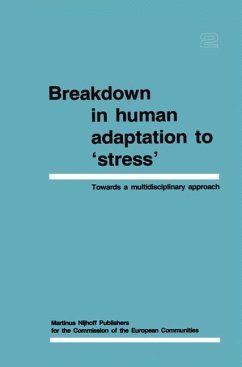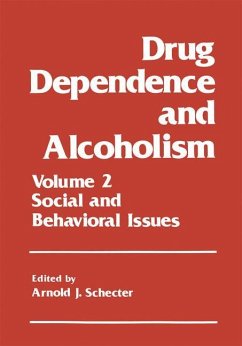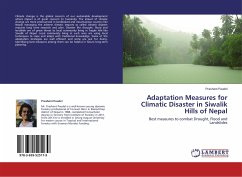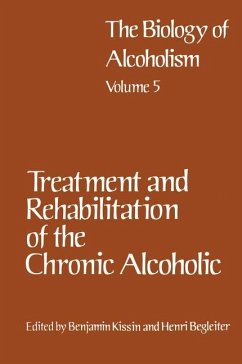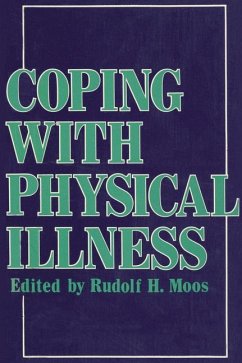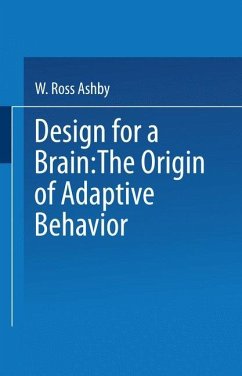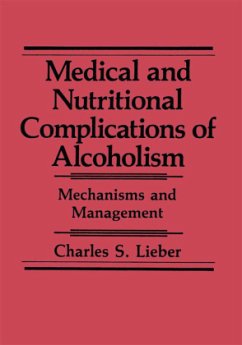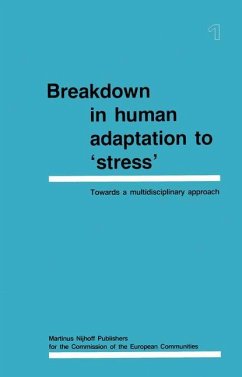
Breakdown in Human Adaptation to 'Stress'
Towards a multidisciplinary approach Volume I

PAYBACK Punkte
19 °P sammeln!
The widespread interest in "stressful" aspects of contemporary society which contribute to its burden of illness and diseases (e.g. gastro intestinal, cardiovascular) has led to a large number of state ments and reports which relate the manifestations to a maladaptation of the individual. Furthermore, recent research suggests that under some condi tions stress may have a more generalized effect of decreasing the body's ability to combat destructive forces and expose it to a variety of diseases. Breakdown in adaptation occurs when an individual cannot cope with demands inherent in his environme...
The widespread interest in "stressful" aspects of contemporary society which contribute to its burden of illness and diseases (e.g. gastro intestinal, cardiovascular) has led to a large number of state ments and reports which relate the manifestations to a maladaptation of the individual. Furthermore, recent research suggests that under some condi tions stress may have a more generalized effect of decreasing the body's ability to combat destructive forces and expose it to a variety of diseases. Breakdown in adaptation occurs when an individual cannot cope with demands inherent in his environment. These may be due to an excessive mental or physical load, including factors of a social or psychological nature and task performance requirements ranging from those which are monotonous, simple and repetitive to complex, fast, decision-taking ones. Experience shows however that not all people placed under the same condi tions suffer similarly, and it follows that to the social and psychological environment should be added a genetic factor influencing, through the brain, the responses of individuals. It is clear that, besides human suffering, this "breakdown in adaptation" causes massive losses of revenue to industry and national health authorities. Thus a reduction in "stress", before "breakdown" occurs, or an improvement in coping with it would be very valuable.





